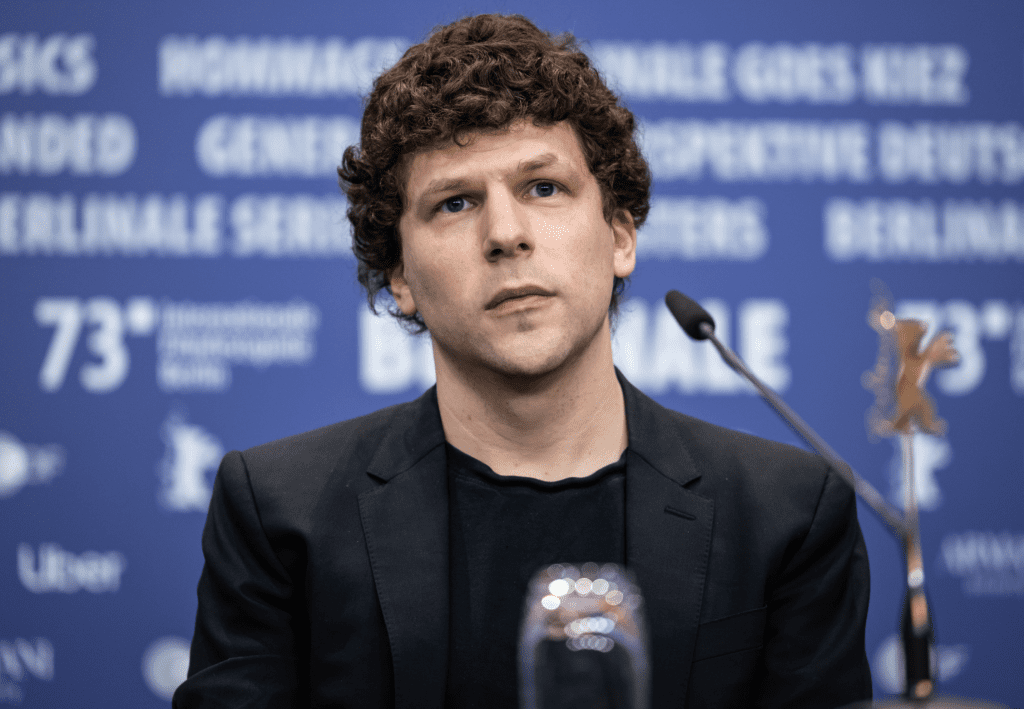Jesse Eisenberg, the actor and filmmaker, is known for his sharp wit and deeply personal work. His latest film, A Real Pain, reflects both his creative brilliance and his ability to tackle challenging topics. This comedy-drama explores generational trauma through a humorous yet poignant lens, making it a standout during the awards season.
In this film, Eisenberg not only directs but also co-stars alongside Kieran Culkin, Jennifer Grey, and Will Sharpe. Together, they delve into family history, self-discovery, and cultural identity. While the movie is centered on historical tragedy, it is filled with humor and introspection, offering viewers a unique cinematic experience.

Exploring Pain and Generational Differences
Jesse Eisenberg and Kieran Culkin agree that today’s generation is more open about personal struggles and emotions. Younger people often share their experiences with anxiety, self-doubt, and mental health openly. But Eisenberg and Culkin, being part of an older generation, find this openness unfamiliar.
Eisenberg says, “I know my pain isn’t special. I have OCD and general anxiety, and bad things happen to me, but I don’t talk about it because I don’t want that kind of attention.” He admits he grew up in an environment where discussing feelings was rare, and this has shaped his outlook.
Culkin adds his perspective, jokingly questioning the idea of “loving yourself” completely. “You should respect yourself, like yourself, and understand yourself. But love yourself? Shouldn’t there be a little humility?” he wonders. Despite his humor, Culkin acknowledges that being open might lead to healthier lives for many.
A Journey Through Family History
A Real Pain is a deeply personal project for Eisenberg. The story follows two cousins, David (played by Eisenberg) and Benji (played by Culkin), as they travel to Poland to explore their Jewish heritage. The trip is inspired by their grandmother’s life, who grew up in Poland before fleeing to New York during turbulent times.
Eisenberg explains that the film is a mix of self-reflection and a search for meaning. As a third-generation American, he felt disconnected from his family’s history. Surrounded by material comfort and the busy New York arts scene, he longed for a deeper understanding of his roots. Writing this film was his way of finding that connection.
The story originally started as a short tale about friends traveling to Mongolia, grappling with modern issues like capitalism. But Eisenberg was inspired to change the setting after seeing an advertisement for “Auschwitz tours (with lunch).” He decided to focus on Poland, a place he and his wife had visited on their own family pilgrimage.
A Tribute to Family
One of the most touching aspects of the film is its connection to Eisenberg’s real-life family. The childhood home of the grandmother in the film was based on his own great-aunt Doris’s house in Poland. Doris, who passed away at the age of 106, had a significant influence on Eisenberg.
“She was blunt and honest,” Eisenberg recalls. “She’d tell me things that might hurt at first but were always true. She kept me grounded, especially as I became successful in acting. She reminded me that I wasn’t a great person yet and that I still had to achieve something meaningful.”
Eisenberg believes Doris would have had mixed feelings about the film. “She might have thought it was self-indulgent, pretending to be a deep exploration of existence. But she also had a strong connection to Poland and our family history, which is at the heart of the film.”
Humor Amid Tragedy
Despite its heavy themes, A Real Pain is filled with humor. Eisenberg uses comedy to explore how people cope with trauma and the complexities of identity. The film juxtaposes the mundane struggles of millennial life with the profound horrors of history, creating a unique and thought-provoking narrative.
The film’s title reflects its exploration of personal and collective pain. While David and Benji’s journey starts as a light-hearted exploration of their heritage, it becomes a deeper look at how past generations influence the present.

Connecting to Heritage
Eisenberg recently became a Polish citizen, a decision that deepened his connection to his family’s history. While he finds it hard to describe how this change has affected him, it’s clear that understanding his roots has been a transformative experience.
Culkin, on the other hand, approaches the subject of heritage with humor. “I have no idea where my family is originally from,” he says, “and I don’t care!” His casual attitude contrasts with Eisenberg’s thoughtful exploration, adding a layer of complexity to their on-screen dynamic.
Reflecting on Creativity
For Eisenberg, creating A Real Pain was an emotional process. He spent hours writing in libraries, pouring his thoughts and feelings into the script. The film became a way for him to reconcile his personal struggles with a larger historical narrative.
“It’s about finding meaning in a life that sometimes feels empty,” he explains. “Looking into my family’s history helped me feel connected to something bigger.”
The result is a film that balances humor with heartfelt reflection. It challenges audiences to think about their own relationships with family, history, and identity.








